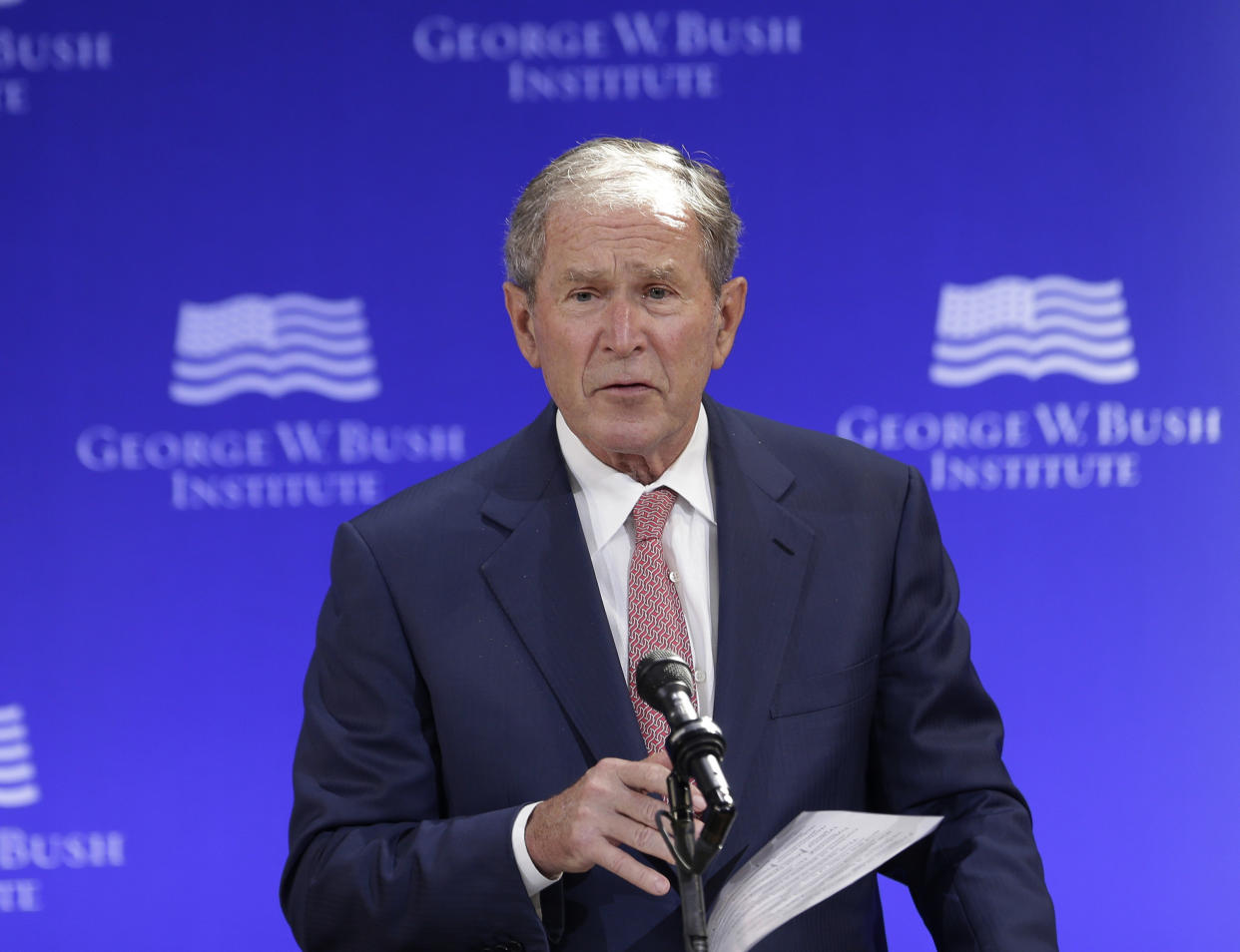George W. Bush knew he'd be missed someday. Now he is, even by Democrats.

Widely praised for a recent speech and with new polling showing a spike in approval even among Democrats, former President George W. Bush continues to benefit from comparisons to a certain other Republican president.
The 43rd president of the United States gave a speech at a Bush Institute event last week in which he decried bigotry and bullying, a statement many considered a reproach to President Trump.
A few days earlier, Trump had said that former presidents — including Bush and his father, George H.W. Bush — had not offered their condolences to the families of fallen soldiers.
“We’ve seen our discourse degraded by casual cruelty,” said Bush. “At times, it could seem like the forces pulling us apart are stronger than the forces binding us together. Argument turns too easily into animosity. Disagreement escalates into dehumanization.”
“We’ve seen nationalism distorted into nativism,” said Bush, warning that “bigotry or white supremacy in any form is blasphemy against the American creed.”
In the aftermath of the speech, a YouGov/Economist survey of 1,500 Americans taken between Oct. 22 and 24 found that 51 percent of Democrats had a positive view of the former president. The Republican president had just a 34 percent approval rating among all Americans upon his departure from office in January 2009.
The speech earned plaudits from some Beltway journalists, but not everyone was willing to forgive and forget their criticisms of the former president. An op-ed published in the Washington Post Thursday morning argued that Bush was important in Trump’s successful White House bid.
“In Bush’s post-presidential glow,” wrote author Rich Benjamin, “it’s easy to forget that he and [Bush adviser Karl] Rove were the crown princes of wedge issues. Having championed a historically unprecedented move to change the Constitution to bar same-sex couples from marrying, Bush and Rove then helped get 11 initiatives to ban same-sex marriage on state ballots in November 2004, the better to draw conservatives to the polls to support his reelection.”
In June, Yahoo News spoke to historians about how the public view of presidents evolves after they leave the Oval Office. Some historical precedents for Bush in terms of approval ratings at the point they left office are Harry S. Truman and Jimmy Carter, two men who saw their reputations improve as the years passed. With the continued low approval ratings of Trump, some Americans are viewing the Bush years with a rosier glow, but there’s a belief among historians that rehabilitation can go only so far.
“Historians in the future will surely focus on Bush’s significant failures: Iraq, Katrina and the financial meltdown chief among them,” said Kevin Kruse, a professor of history at Princeton. “But as time passes, they’ll increasingly be drawn to the differences between his presidency and his Republican successor, most notably on matters of race and religion. Bush sought to broaden the Republican coalition, softening the party’s stances on immigration and making room for Latinos and African-Americans. More impressively, his outreach to Muslims at home and abroad in the wake of 9/11 made for a notable departure on religious liberty as well.”
“But,” added Kruse, “there are significant failures on his watch that no amount of comparison will ever make good.”
Read more from Yahoo News:
64 hours in October: How one weekend blew up the rules of American politics
Behind Flake’s decision to bow out of Senate, a disillusioning, disheartening year
San Juan mayor calls for canceling ‘alarming’ contract for Puerto Rican power repairs
Photos: Revisiting the assassination of JFK, as the last files are opened



